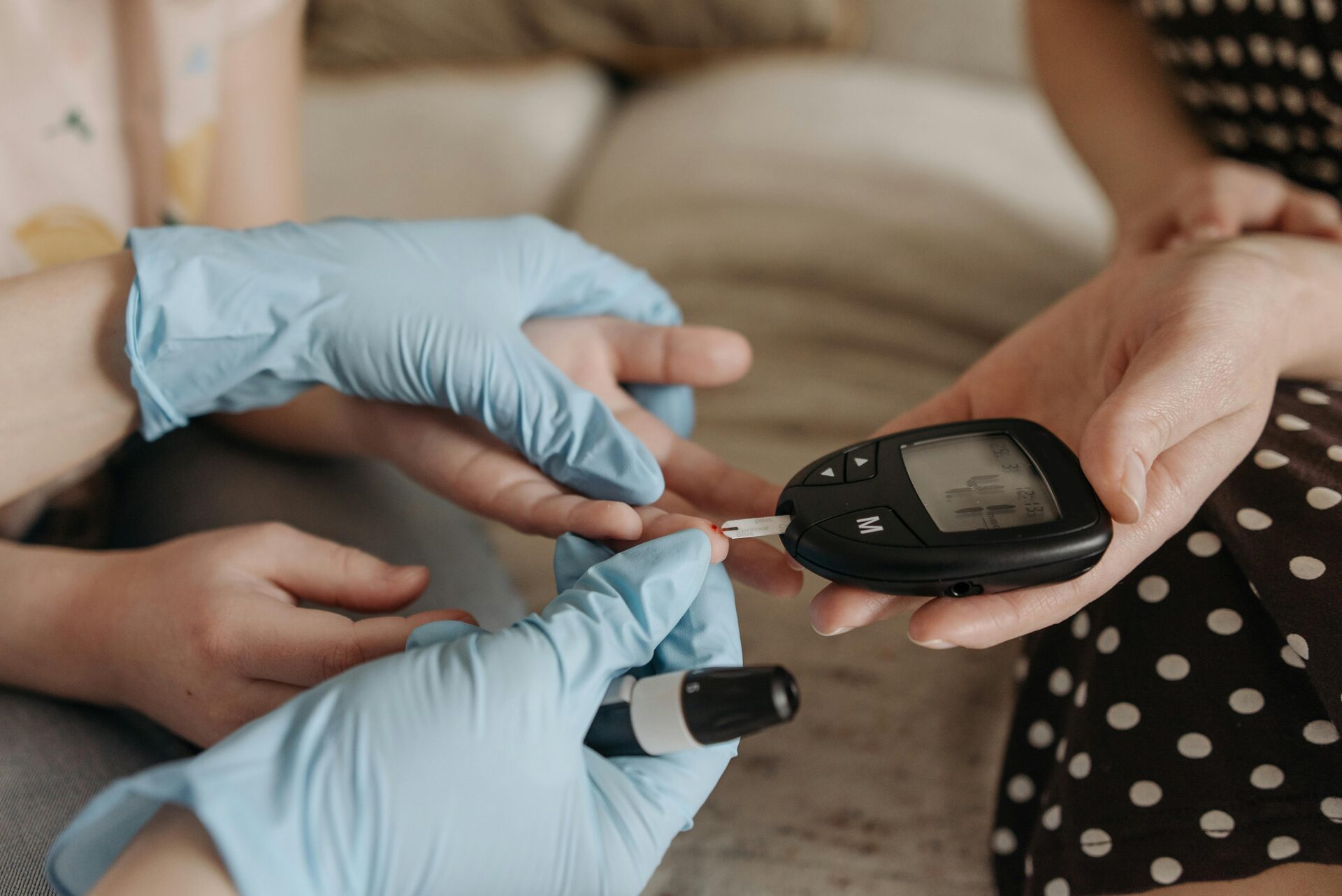How to Balance Your Blood Sugar Naturally: A Complete Guide for Lasting Energy and Health
Contents
- 1 How to Balance Your Blood Sugar Naturally: A Complete Guide for Lasting Energy and Health
- 1.0.0.0.0.1 Read DISCLAIMER
- 1.0.0.0.0.2 The material presented here is for general informational and educational purposes only and is not medical advice. Although we attempt to provide current and accurate information, this blog should not be used as a replacement for professional medical consultation, diagnosis, or treatment. In all cases, consult your physician or an accredited medical practitioner with regards to any medical condition or treatment. Do not ignore professional medical advice or wait for it on the basis of information provided by this blog. In a medical emergency, call emergency services immediately.
- 1.1 Understanding Blood Sugar: The Foundation of Energy
- 1.2 The Hidden Signs of Blood Sugar Imbalance
- 1.3 Food as Medicine: Eating to Balance Blood Sugar
- 1.4 Timing Matters: When You Eat Is as Important as What You Eat
- 1.5 The Role of Movement: Exercise and Blood Sugar
- 1.6 Stress: The Silent Blood Sugar Disruptor
- 1.7 Sleep and Blood Sugar: An Overlooked Connection
- 1.8 Hydration: The Forgotten Key
- 1.9 The Emotional Side of Sugar
- 1.10 Building a Sustainable Lifestyle: Small Changes, Lasting Impact
- 1.11 The Long-Term Rewards of Blood Sugar Balance
- 1.12 A Journey of Awareness and Empowerment
- 1.13 Conclusion: Your Path to Steady Energy and Lasting Health
- 1.14 FAQs with Answers
Discover practical ways to balance your blood sugar naturally with diet, lifestyle, and mindful habits for lasting energy and better health.
Read DISCLAIMER
The material presented here is for general informational and educational purposes only and is not medical advice. Although we attempt to provide current and accurate information, this blog should not be used as a replacement for professional medical consultation, diagnosis, or treatment. In all cases, consult your physician or an accredited medical practitioner with regards to any medical condition or treatment. Do not ignore professional medical advice or wait for it on the basis of information provided by this blog. In a medical emergency, call emergency services immediately.
Balancing blood sugar is not just about managing diabetes or preventing it; it is about reclaiming control over your body, your mind, and your daily energy. Imagine waking up refreshed, moving through your day without sudden crashes, and ending the night without cravings gnawing at you. That is what balanced blood sugar feels like. It is stability, clarity, and resilience woven into the very core of your health.
Blood sugar, or glucose, is the body’s main source of energy. When it fluctuates too wildly—spiking after meals and plunging soon after—it creates havoc: mood swings, fatigue, brain fog, and in the long run, serious health risks. But the good news is this—balancing blood sugar is not rocket science. It is an art of combining nutrition, lifestyle, and mindful living so your body functions in harmony.
In this guide, we will journey through everything you need to know about balancing blood sugar. We will go beyond the clinical definitions and numbers to understand the daily choices, subtle habits, and powerful shifts that can help you achieve lasting balance.
Understanding Blood Sugar: The Foundation of Energy
Blood sugar is the concentration of glucose in your blood. Every cell in your body needs glucose to function, but the key lies in regulation. The hormone insulin plays a starring role here, shuttling glucose from the bloodstream into cells.
When the system works smoothly, your body maintains steady energy. But with irregular eating, poor sleep, high stress, and processed foods, the delicate balance tips. Insulin may surge excessively or cells may stop responding efficiently—a state called insulin resistance. This sets the stage for weight gain, fatigue, and long-term metabolic issues.
Think of blood sugar balance like a dance. If one partner (glucose) moves too fast, the other (insulin) stumbles, and the harmony is lost. The beauty of this dance is that you can retrain it—through diet, exercise, and mindful practices.

The Hidden Signs of Blood Sugar Imbalance
Not all blood sugar issues show up as dramatic crashes or fainting spells. Often, they whisper through subtle symptoms we dismiss as “normal.” Do you ever feel exhausted even after eating? Do you experience afternoon slumps that demand coffee or sweets? Do mood swings seem unpredictable?
Other common signs include:
- Intense cravings for sugary or starchy foods.
- Feeling shaky, anxious, or irritable between meals.
- Difficulty concentrating or episodes of brain fog.
- Trouble sleeping or waking up in the middle of the night.
- Unexplained weight gain, especially around the belly.
These signals are your body’s way of saying, “My sugar rhythm is off balance.” Listening to them early can prevent deeper health challenges down the road.
Food as Medicine: Eating to Balance Blood Sugar
Nutrition is the cornerstone of blood sugar balance. What you eat, how you eat, and when you eat all influence your glucose response.
The Power of Protein
Every meal should contain some protein. Whether it’s eggs, lentils, beans, fish, or lean meats, protein slows down the digestion of carbohydrates, preventing sudden spikes in blood sugar. Imagine eating a slice of bread alone versus pairing it with an omelet—the second option keeps your glucose more stable.
Healthy Fats: The Unsung Heroes
Avocados, nuts, seeds, olive oil, and fatty fish provide healthy fats that support insulin sensitivity and extend satiety. Far from being the enemy, good fats are like anchors, keeping your blood sugar grounded instead of letting it swing wildly.
The Fiber Effect
Fiber acts like a gentle brake on digestion. Vegetables, whole grains, and legumes slow glucose absorption, so your blood sugar rises gradually instead of shooting up. A plate full of colorful veggies is not just visually appealing—it’s your secret tool for balance.
The Carbohydrate Equation
Carbohydrates are not villains. They are energy providers, but their type and timing matter. Refined carbs like white bread and sugary snacks hit the bloodstream too fast. In contrast, complex carbs—like quinoa, brown rice, and sweet potatoes—come packaged with fiber, slowing the release.
The rule of thumb: eat carbs in their most natural, unprocessed form, and always pair them with protein or fat.

Timing Matters: When You Eat Is as Important as What You Eat
Blood sugar balance is influenced not just by diet quality but by rhythm. Skipping meals, late-night snacking, or grazing all day can disrupt your natural glucose flow.
Starting your day with a protein-rich breakfast helps stabilize blood sugar from the beginning. Waiting too long to eat in the morning can lead to cortisol-driven sugar spikes later. Similarly, spacing meals too far apart can cause dips, while constant snacking prevents your system from resetting.
Think of eating as setting the tempo for your body. A steady, predictable rhythm helps your system dance gracefully rather than stumble.
The Role of Movement: Exercise and Blood Sugar
Exercise is nature’s most powerful tool for blood sugar regulation. When you move, your muscles use glucose directly, lowering blood sugar without relying heavily on insulin.
You don’t need to run marathons. Even a 15-minute walk after meals makes a significant difference. Strength training builds muscle, which acts as a reservoir for glucose. Yoga, with its focus on breathing and stress reduction, improves insulin sensitivity as well.
The secret is consistency. Small, daily doses of movement are far more effective than intense but irregular exercise.
Stress: The Silent Blood Sugar Disruptor
Stress releases hormones like cortisol and adrenaline that raise blood sugar levels—preparing your body for “fight or flight.” But when stress is chronic, this constant glucose elevation wears your system down.
That’s why balancing blood sugar isn’t just about food and exercise; it’s about calming your inner world. Meditation, deep breathing, journaling, or even a hobby that brings joy can lower stress and indirectly steady your glucose.
Think of stress management as oiling the gears of your blood sugar machinery—without it, even the best fuel won’t run smoothly.
Sleep and Blood Sugar: An Overlooked Connection
Sleep deprivation is like pulling the plug on your body’s energy management system. Just one night of poor sleep can increase insulin resistance and drive cravings for high-sugar foods.
Prioritizing 7–9 hours of restful sleep resets your glucose metabolism. Going to bed and waking up at consistent times strengthens this cycle. Imagine sleep as your body’s nightly tune-up—skip it, and the machinery struggles the next day.
Hydration: The Forgotten Key
Even mild dehydration raises blood sugar levels because the concentration of glucose in the blood increases as water levels drop. Drinking water throughout the day, especially before meals, supports smoother glucose control. Herbal teas and mineral-rich broths add extra benefits.
Hydration is not glamorous, but it is a quiet, steadfast ally in your balance journey.

The Emotional Side of Sugar
Food is never just fuel; it’s comfort, memory, and sometimes even escape. Many people reach for sweets when they feel lonely, anxious, or tired. This emotional relationship with sugar complicates balance, because it’s not about willpower—it’s about awareness.
Learning to pause before reaching for sugary comfort, asking yourself what you really need in that moment, is transformative. Sometimes it’s rest, sometimes connection, sometimes simply water. Breaking this cycle requires compassion, not restriction.
Building a Sustainable Lifestyle: Small Changes, Lasting Impact
Balancing blood sugar is not about perfection or deprivation. It’s about creating an environment where stability becomes natural. Start by adjusting one meal, adding one walk, prioritizing one night of sleep. Over time, these small shifts compound into a lifestyle where energy is steady, mood is calm, and cravings no longer control you.
The Long-Term Rewards of Blood Sugar Balance
When your blood sugar is stable, the benefits ripple across every part of life. Energy levels rise. Mental clarity sharpens. Weight becomes easier to manage. The risk of chronic illnesses like diabetes, heart disease, and hormonal imbalances decreases.
More importantly, you regain trust in your body. Instead of feeling trapped in a cycle of highs and lows, you experience a steady flow of vitality.
A Journey of Awareness and Empowerment
Balancing blood sugar is a journey of tuning in—listening to your body’s signals, honoring its needs, and making choices that support harmony. It’s not about rigid rules but about building a relationship with your own biology.
Imagine this: You walk through your day with steady energy, a calm mind, and freedom from cravings. Meals feel nourishing instead of stressful. Your body feels like an ally instead of a battleground. That is the power of blood sugar balance—a gift you can give yourself every single day.
Conclusion: Your Path to Steady Energy and Lasting Health
Balancing your blood sugar naturally is not about following strict rules or giving up everything you love—it’s about making mindful choices that bring your body back into harmony. Through nourishing foods, regular movement, quality sleep, stress management, and hydration, you create a rhythm where your energy remains steady, your mind stays clear, and your cravings no longer control you.
The journey starts with small, consistent steps—adding more protein to your meals, taking a short walk after eating, or prioritizing a full night of rest. Each action builds on the next, creating a lifestyle where balance becomes second nature rather than a struggle.
When you stabilize your blood sugar, you do more than prevent illness—you unlock vitality, clarity, and resilience in every part of your life. Your body begins to feel like an ally again, guiding you toward health rather than holding you back.
Remember: lasting change doesn’t happen overnight. But with awareness, patience, and compassion, you can reclaim control of your health and experience the freedom of living in balance—one choice, one meal, and one day at a time.
FAQs with Answers
- Why is balancing blood sugar so important for health?
Balancing blood sugar helps prevent fatigue, mood swings, weight gain, and long-term risks like diabetes and heart disease. Stable glucose supports energy, brain clarity, and overall well-being. - What are the early signs of unstable blood sugar?
Common signs include sudden energy crashes, cravings for sweets, irritability, dizziness, excessive thirst, and frequent urination. Ignoring these signals can increase long-term health risks. - Can diet alone balance blood sugar naturally?
Yes, diet plays a central role. Choosing whole foods, high-fiber meals, lean proteins, and avoiding refined sugars can help stabilize glucose levels without medication for many people. - How does stress affect blood sugar balance?
When stressed, the body releases cortisol, which raises blood glucose levels to provide quick energy. Chronic stress can keep sugar levels high, making balance harder to maintain. - Do certain foods spike blood sugar more than others?
Yes. Foods high in refined carbs, sugary drinks, and processed snacks cause rapid glucose spikes. Whole grains, vegetables, and proteins digest slowly, keeping levels steady. - How does exercise help with blood sugar control?
Exercise increases insulin sensitivity and helps muscles use glucose for energy. Activities like walking, yoga, or strength training make blood sugar regulation more efficient. - Can skipping meals cause blood sugar imbalance?
Yes. Skipping meals can cause sharp drops in glucose, leading to cravings, headaches, and irritability. It may also trigger overeating later, worsening fluctuations. - Is fiber important for balancing blood sugar?
Absolutely. Fiber slows down carbohydrate digestion, preventing sudden glucose spikes. Soluble fiber in oats, beans, and fruits is especially beneficial. - How much water should I drink to support blood sugar balance?
Staying hydrated helps the kidneys flush out excess glucose. Drinking enough water daily supports steady blood sugar and overall metabolism. - Can poor sleep disrupt blood sugar levels?
Yes. Inadequate or irregular sleep affects insulin sensitivity, leading to higher glucose levels. Prioritizing quality rest is crucial for balance. - Are natural remedies like cinnamon or apple cider vinegar effective?
Some natural remedies may improve insulin sensitivity and glucose control. However, they should complement — not replace — a balanced diet and lifestyle. - Does weight management play a role in blood sugar balance?
Yes. Excess abdominal fat reduces insulin sensitivity, making glucose harder to regulate. Healthy weight management improves balance significantly. - Can mindful eating habits improve blood sugar control?
Mindful eating reduces overeating and helps you choose nutrient-dense foods. Paying attention to hunger cues can prevent sugar spikes and crashes. - How long does it take to see improvements in blood sugar balance?
Changes can be seen within days to weeks, depending on diet, activity, stress, and consistency. Long-term habits lead to lasting stability. - Do people without diabetes need to worry about blood sugar?
Yes. Even without diabetes, unstable glucose can cause fatigue, weight gain, and inflammation. Keeping levels steady protects long-term health and vitality.

It’s fascinating how easily accessible online gaming has become – instant deposits via GCash are a game changer! Thinking about responsible play is key, and platforms like fair play login slot download seem to prioritize that, alongside a wide variety of options. It’s all about balance, right?
ae888vvip is another one promising a VIP experience. See what the hype is all about if you’re feeling fancy. Head over to: ae888vvip.
Downloading the 12betapp was a smart move. The interface is really smooth and it’s so much faster to place bets. If you want to download the app use 12betapp link.
Alright, champs! Checked out mu88ai. Decent selection of games and the site’s fairly straightforward. Could be worth a look if you’re bored. Check it out here: mu88ai
Ready to win big? 988betlogin looks promising. The login process seems straightforward. Worth a shot, right? Get yourself logged in 988betlogin.
Feeling like a high roller? 661betvip is calling my name. VIP programs usually mean better perks and faster withdrawals. Sounds good to me! Level up your game 661betvip.
Alright, so I tried nh88chametainang. It’s…fine. Nothing particularly stands out, good or bad. It’s functional, the games are there, deposits/withdrawals are reasonably quick. If you’re not picky, it’s alright. If you’re looking for something special, maybe keep looking: nh88chametainang.
**mitolyn official**
Mitolyn is a carefully developed, plant-based formula created to help support metabolic efficiency and encourage healthy, lasting weight management.